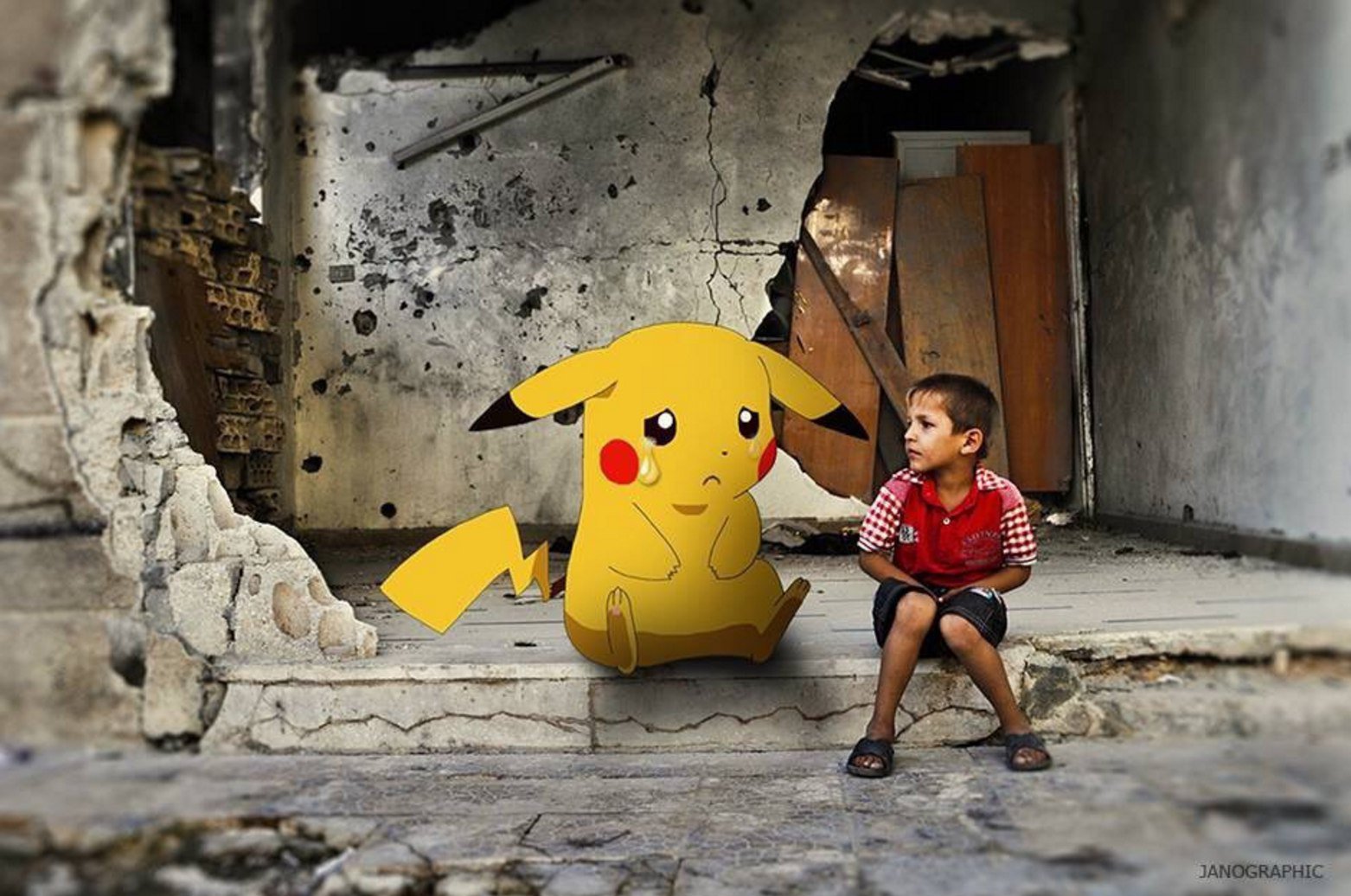Syrian Children Use 'Pokemon Go' To Highlight Their Miserable Plight

NEW DELHI: Pokemon Go is massively successful. The app’s tagline “Gotta Catch ‘Em All” has users stumbling upon dead bodies, hunting Pokemon in the Holocaust Memorial, and even becoming inadvertent participants of armed robberies. The game, in short, is a sensation.
The feel good aspect of the game (Pokemon, you cannot deny, are unbelievably cute creatures), takes a very tragic turn in war torn Syria, where children are using Pokemon Go’s popularity to highlight their miserable realities. “Come Save Us All” is the tag they are replacing the game’s catchphrase with -- in a stark reminder that the world just does not care enough about the millions of people displaced by the wars in Syria.
The Revolutionary Forces of Syria Media Office (RFS) has been tweeting photographs of children holding up printouts of Pokémon, alongside captions describing their locations within Syria and imploring people to "save me.” For those who know how the game works, users have to locate Pokemon within the game (which uses your phone’s GPS to navigate the real world).
#PokemonInSyria #PokemonGO#PrayForSyria pic.twitter.com/i0eYAfqAnQ
— إعلام قوى الثورة (@RFS_mediaoffice) July 23, 2016
#PokemonInSyria #PokemonGO#PrayForSyria pic.twitter.com/RGF5YmLAtA
— إعلام قوى الثورة (@RFS_mediaoffice) July 23, 2016
The pictures speak a thousand words:
Artist Khaled Akil who belongs to the war torn city of Aleppo, also used the game to draw attention to the crisis in Syria. In the Syrian artist's latest project, a series of photos from AFP posted to his website show Pokemon alongside scenes of despair.
More than four million Syrians have fled the country’s civil war, which has damaged much of the country's infrastructure and killed more than 220,000 people. Of the four million displaced, a large number are children, with the UNICEF saying that millions of Syrian children face a "high risk" of disease due to the scarcity of clean water and the scorching summer heat.
In another war-torn part of the world, Gaza, a similar use of the game ‘Pokemon Go’ highlights the destruction that is part of everyday life.
One such image is that of Pikachu lying among rubble in a site that has been torn down, with the health status of the creature describing it as “Dead.”
Another image being widely shared depicts a rare Charizard that’s out of reach because it’s on the other side of the apartheid wall that separates Israeli territory from the West Bank.



